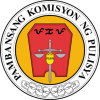Assistance to Municipalities (AM)
The Assistance to Municipalities (AM) program is a funding initiative by the Department of the Interior and Local Government (DILG) in the Philippines. It is designed to assist municipalities, especially those that are less capable of generating local revenues, in implementing priority infrastructure projects. Here’s a summary of the key aspects of the AM program:
1. Objective:
- The primary goal of the AM program is to help municipalities implement projects that address their infrastructure needs, contributing to local economic development and improving public services.
2. Eligibility:
- The program targets municipalities that have limited financial capacity and need support to undertake development projects.
- Eligibility criteria often include compliance with governance requirements, such as having a good performance in the DILG’s Good Financial Housekeeping (GFH) and other related assessments.
3. Funded Projects:
- Water Supply Systems: Development of potable water supply systems to ensure access to clean water in communities.
- Local Access Roads: Construction or rehabilitation of local roads to improve transportation and connectivity.
- Evacuation Centers: Building or improving evacuation centers to enhance disaster preparedness and response.
- Sanitation Facilities: Development of sanitation projects to improve public health conditions.
- Other Infrastructure: Depending on the needs of the municipality, other types of projects may also be funded, such as public markets, drainage systems, and small-scale irrigation systems.
4. Process:
- Proposal Submission: Municipalities are required to submit project proposals that are aligned with their local development plans.
- Evaluation and Approval: The DILG evaluates the proposals based on criteria like necessity, sustainability, and alignment with national and local priorities. Approved projects receive funding based on the evaluation.
- Implementation and Monitoring: Once approved, municipalities implement the projects, with the DILG providing oversight to ensure that the funds are used efficiently and effectively.
5. Impact:
- The program has had a significant impact on improving infrastructure in municipalities across the Philippines. It has helped bridge the gap in local government capacities, particularly in less-developed areas, and has contributed to inclusive growth by enhancing public services and economic opportunities at the local level.
6. Challenges:
- Implementation Delays: Some projects face delays due to administrative bottlenecks, procurement issues, or local governance challenges.
- Sustainability: Ensuring the sustainability and maintenance of completed projects is a key concern, requiring continuous local government commitment.
7. Recent Developments:
- The AM program is continually evolving to address emerging needs and improve its processes. Recent updates often include enhanced guidelines for project selection, stricter monitoring, and measures to ensure transparency and accountability in fund utilization.









